
近年來,國際間經濟風浪瞬息萬變,各國景氣均受影響,其中又以歐盟國家的受創最深。
The global economy has been exceptionally volatile in recent years. While no country has remained unscathed, the European Union has been particularly hard hit.
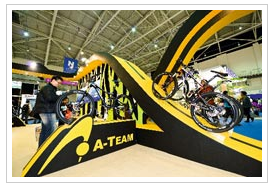
但是,還是有少數國家靠著「中堅企業」屹立於洪流之中,化危機為轉機,成為區域經濟穩定的力量。
But a few countries that rely on medium-sized enterprises to calm their troubled economic waters are finding opportunities in the crisis and helping stabilize their regions.
在歐盟中,最傑出者當屬德國;在亞洲,中堅企業群的模範生則是台灣。
Germany is the obvious example within the EU. In Asia, it’s Taiwan.
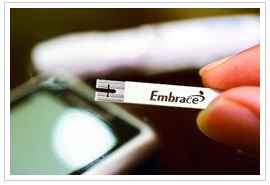
德國在歐債危機席捲的2012年,國內生產毛額(GDP)成長率仍達0.7%,高於英、法鄰國的0.0%及0.3%;2013年的GDP成長率雖下滑至0.4%,但貿易順差卻攀上歷史高峰,達1,989億歐元(約2,700億美元),相當於國內生產總值的7.3%,出口表現極為強勁。
In 2012, in the midst of the Euro debt crisis, Germany boasted gross domestic product (GDP) growth of 0.7%, outperforming both the UK (0.0%) and France (0.3%). In 2013, its GDP grew a further 0.4%, while its trade surplus rose to an historic high of €198.9 billion (roughly US$270 billion), an amount equal to 7.3% of its GDP, on the outstanding performance of its exports.
德國的對外貿易堅若磐石,正因為有陣容堅強的「中堅企業」支持。這群中堅企業的規模不大,名氣也不若西門子、賓士汽車、蘋果、三星等跨國財團,卻因擁有核心技術或產品,在國際市場為不可取代的隱形冠軍,所以能力抗景氣波動,成為維繫德國財政的關鍵。
Germany’s rock-solid external trade owes much to its medium-sized enterprises. Neither as large or as well known as Siemens, Mercedes-Benz, Apple, or Sam¬sung, these companies provide irreplaceable products and technologies to the global market, enabling them to weather economic storms and buttress Germany’s balance sheet.
台灣,中小企業相當活躍,產業結構與德國頗為相近,更有不少已在專精領域獨占鰲頭的中堅企業。
Taiwan’s small and medium-sized enterprises are similarly vigorous and similarly structured. And we too have a number of medium-sized enterprises that dominate their specializations.
如何和德國交流經驗,推廣隱形冠軍的成功模式,讓更多中小企業持續壯大為中堅企業,將是台灣全民「拚經濟」的重要課題。
Can Taiwan and Germany somehow trade tips to promote the success of the “hidden champion” model? What can we do to help more SMEs grow into resilient medium-sized enterprises? These are important questions for Taiwan’s economic development.
3月春日,第27屆「台北國際自行車展」在台北世貿中心熱鬧登場。現場人聲鼎沸,來自各國的製造商與通路商穿梭其中,嗅聞最新趨勢,發掘採購貿易對象和建立上下游供應鏈的機會。
The 27th annual Tai¬pei International Cycle Show opened in March at the Tai¬pei World Trade Center. Representatives from the world’s bicycle manufacturers and distributors navigated boisterous crowds in search of new trends, new business opportunities, and new relationships up and down the supply chain.
美國汽車製造廠福特汽車首次參展,秀出最新異業研發的折疊自行車;葡萄牙知名自行車零件製造商Miranda則是第二次參加,去年的參展經驗已讓他們深覺,「台北國際自行車展」的效果遠比歐洲、美國的展覽效果還要好,希望明年有機會再擴大展示面積。
Ford Motor Company attended the show for the first time this year to introduce its newly developed folding bicycle. Miranda, a well known Portuguese cycling components manufacturer, attended for the second time. Having achieved far better results at last year’s Tai¬pei exhibition than at similar shows in Europe and the US, the company was already looking into the possibility of expanding its booth in 2015.
這場展覽,可以看出台灣自行車產業鏈A-Team的龍頭地位,超過7,000名國外買主為此來台,參觀買主成長了4.9%。
The show makes plain Taiwan’s leading position in the cycle industry. In fact, more than 7,000 buyers attended the expo, up 4.9% from the previous year.
在這裡面,讓台灣風光至極的就是巨大捷安特和美利達工業兩家「中堅企業」了,每年皆為我國創造新台幣數百億元的出口產值。
Inside, Giant and Merida, two medium-sized enterprises that generate tens of billions of NT dollars in exports every year, made Taiwan proud.
從「台灣第一」出發
Commitment to excellence
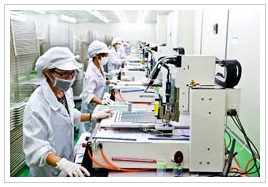
來到第二個現場,更可以從民眾生活中直接體驗到台灣中堅企業的威力。
Switching gears, another scene may help illustrate the power Taiwan’s medium-sized enterprises wield in every¬day life.
走進全台各大醫療用品店,貨架上擺放著琳瑯滿目的血糖儀與試片,占據了熱銷商品的前幾名,也透露出居家血糖檢測市場的龐大商機。
Walk into any of Taiwan’s major medical supply outlets and you’ll see innumerable blood sugar testing devices and test strips. The fact that these products are always among these stores’ biggest sellers points to the enormous opportunities available in the blood-sugar test market.
「我已介紹好多朋友購買血糖儀,居家檢測十分方便,」正在採買醫療用品的張小姐說。
“I’ve encouraged many friends to buy testing devices because testing at home is just so much more convenient,” says a Ms. ¬Zhang.
由於生活型態與飲食習慣的改變,糖尿病已成為現代人最普遍的慢性病之一,根據國際糖尿病聯盟(International Diabetes Federation)統計,全球糖尿病人口在2013年底已突破至3億8,200萬人;2035年,更會增加至5億9,200萬人。
Changes to our lifestyles and diets have made diabetes the most ubiquitous chronic condition of the modern era. According to the International Diabetes Federation, as of the end of 2013 some 382 million people around the world had diabetes. The IDF projects that this figure will rise to 592 million by 2035.
糖尿病患者增加,血糖檢測產品的需求也水漲船高,估計全球的市場規模已達120億美元,是前景極為看好的醫材藍海。
The increase in the number of diabetes patients has been increasing the demand for blood sugar testing devices. With a global market currently estimated to be worth about US$12 billion, the outlook for the industry is exceptionally bright.

而台灣有家廠商,深耕血糖量測領域已近20年,無論在研發技術、製造成本與市場滲透力,均能與國際大廠一較高下,這是曾4度榮獲《富比士》雜誌評比為亞洲前200強中小企業的五鼎生技。
The Taiwanese firm Apex¬Bio has been active in the field for nearly 20 years and boasts R&D, manufacturing costs, and market penetration figures that compare favorably with those of the world’s major device makers. The company has also been ranked among the top 200 SMEs in Asia four times by Forbes magazine.
五鼎生技的董事長沈燕士,多年前曾是清大分子研究所教授,為了證實所學能與產業結合,毅然放棄人人稱羨的教職自行創業。
Company CEO Thomas Shen was previously a professor of molecular biology at National Tsing Hua University. He gave up teaching and started his own business to prove that his studies had commercial applications.
「我絕不做台灣第二的產品!」沈燕士深知,自己是學者出身,沒有本錢與大公司力拚,只有專業技術才是強項。幾經思索,他決定聚焦在糖尿病的醫材領域,因為糖尿病無法根治,只能靠後天控制,只要能研發出準確又簡易使用的居家檢測儀器,再搭配必須持續添購的耗材,就能掌握龐大商機。
Well aware that his own background was in academia and that he didn’t have the capital to compete head to head with major corporations, he resolved to leverage his professional expertise by focusing on diabetes-related medical supplies. Because the disease can only be treated, not cured, he felt that there were great business opportunities in developing accurate, easy-to-use home testing devices and the consumable testing supplies that go with them.
1996年,沈燕士以生物感測的電化學法為基礎,成功研發出需要試片耗材的血糖儀,成為亞洲首家、全球第4家同步以電化學法,自行研發血糖檢測技術專利的廠商。
Drawing on his knowledge of electrochemically based biological testing, in 1996 Shen developed a blood sugar testing device that used disposable test strips. His was the first company in Asia and the fourth company in the world to develop this kind of testing technology in-house and patent it.
1997年,沈燕士團隊將血糖測試系統的專利分割出來,吸引多家法人機構主動投資,五鼎生技於焉誕生。由於公司成立前,就已擁有血糖儀的原型(prototype)產品,省卻漫長的研發過程,得以創下首年度就獲利的紀錄。
In 1997, Shen took the key patents on the blood testing system and used them to solicit investment from a number of institutions, giving rise to Apex¬Bio. Because Shen’s team had already developed a prototype, the company was able to get a product out quickly and turn a profit in its first year of business.
其後十多年,五鼎生技先透過貼牌代工的策略,打進國際知名醫療大廠的供應鏈,成功滲入歐美市場站穩地位。接著再推出自有品牌「GlucoSure」,瞄準品牌忠誠度較低的中國、東南亞、俄羅斯、巴西、印度、中東、非洲等新興國家積極布局;更陸續研發血紅素、尿酸、乳酸、膽固醇與醣化血色素等多樣化的檢測產品,以因應不同區域的病患需求。
It then spent the next dozen or so years operating on an OEM model. During that period, it joined the supply chain of a major international medical devices manufacturer and established itself in both the European and American markets. Seeking to build its business, it introduced its own brand, Gluco¬Sure, in markets with little loyalty to particular brands, including those in mainland China, Southeast Asia, Russia, Brazil, India, the Middle East, and Africa.
由於技術領先又具市場前瞻性,五鼎生技成立17年來,年年創下30~40%的高獲利率,促使國內其他廠商前仆後繼地投入血糖量測領域,台灣因而成為供應全球血糖測試儀器的重鎮。種種傑出成就,也讓五鼎生技在去年榮獲經濟部工業局評選為「卓越中堅企業」。
The company’s leading technology and ability to anticipate the market have enabled it to grow 30–40% per annum since its establishment in 1997. This success has encouraged other Taiwanese firms to enter the blood sugar testing field, placing Taiwan at the heart of the blood sugar testing device industry, and earned it a 2013 Taiwan Mittelstand Award from the Ministry of Economic Affairs.
隱形冠軍,中堅企業
Hidden champions
巨大捷安特、美利達和五鼎生技,都是台灣為數眾多「中堅企業」中具體而微的縮影。綜觀整體產業結構,這些中堅企業已經為台灣打下堅固、深具競爭力的底蘊。
Giant, Merida, and Apex¬Bio encapsulate what Taiwan’s Mittelstand companies are all about. Viewed in the context of Taiwanese industry as a whole, such companies are the foundation of our competitiveness.
相較於「大企業」及「中小企業」,對一般民眾來說,「中堅企業」是稍嫌陌生的新名詞,它的定義基礎,來自德國Simon-Kucher & Partners策略與行銷顧問公司董事長暨執行長赫曼.西蒙教授提出的「隱形冠軍」理論。
“Mittelstand” is a relatively new term that originated with Hermann Simon, chairman of the German management consultancy Simon-Kucher & Partners, who mentioned it in his book on “hidden champions.”
早自1986年,赫曼.西蒙即深入研究德國400家在全球市場表現優越的中小企業經營模式。他發現,這群企業的知名度雖然不如西門子、賓士汽車等跨國公司,卻對德國經濟帶來莫大貢獻;其後,他又將研究範圍延伸至日本、美國、南非與紐西蘭等國,也發現這些國家同樣擁有一群在特定領域發揮所長的企業。
In 1986, Simon was studying the business models of 400 German SMEs that were performing exceptionally well in the global marketplace. He discovered that while they were far less known than transnationals like Siemens and Mercedes-Benz, they were making important contributions to the German economy. When Simon extended his research to Japan, the US, South Africa and New Zealand, he discovered a similar phenomenon: relatively unknown medium-sized companies dominating their niches.
赫曼.西蒙形容這群知名度不高、卻在專精領域居於領先地位的企業為「隱形冠軍」。
隱形冠軍的年營收多半低於50億美元,營運規模不及大型企業,卻是穩固一國經濟基礎的中流砥柱,所以又被稱為「中堅企業」。
Simon coined the term “hidden champions” to describe them.
Most hidden champions have annual revenues of less than US$5 billion, making them considerably smaller than what is generally considered a “large” corporation. Nonetheless, their role in stabilizing their nations’ economies has earned them their own designation: Mittelstand companies.
包括產品行銷七十多個國家的德國BRITA濾水壼、掌握全球40%以上風力發電專利技術的德國廠商愛納康(Enercon)、為一百五十多個國家印製鈔票的英國公司德納羅(De La Rue)、供應全世界3成以上的牙膏、化妝品、藥膏軟管的印度集團愛索爾(Essel Propack),以及寡占全球7成以上自行車傳動系統市場的日本島野變速器(SHIMANO),均屬此類知名度較不高,卻「惦惦呷三碗公」的中堅企業。
Such companies include Germany’s Brita, a maker of water filters and filter pitchers that distributes its products in more than 70 countries, and Enercon, which controls more than 40% of the world’s wind-power patents; the UK’s De La Rue, which manufactures paper money for more than 150 countries; India’s Essel Propack, which makes the tubes for more than 30% of the world’s toothpaste, cosmetics, and medicated ointments; and Japan’s Shimano, which controls more than 70% of the global market for bicycle drivetrain systems. None of these Mittelstand¬ companies are particularly well known; all just quietly go about their business.
選菁英、助成長、建基盤
Supporting growth
台灣的產業結構與發展故事和德國很類似。
「德國經濟表現始終讓人刮目相看,與其擁有眾多百年品牌的中小企業有關。」赫曼.西蒙認為,德國的經濟基石,來自隱藏在各領域、默默耕耘並成為一方之霸的中堅企業。在德國,中小企業的定義為員工在10人~499人,年營業額為100萬~5,000萬歐元的公司。而目前德國高達99.7%的企業均為中小企業(350萬家),總計雇用78.5%的全國就業人口;其中又有千餘家屬於已在全球市場囊括高市占率的中堅企業。
台灣的產業結構與德國頗為相近,根據經濟部中小企業處的統計,我國在2012年已擁有超過130萬家的中小企業,約占企業總數的97.67%,更創造了78.11%的全國就業人口。因此我國若能像德國持續般推動扶植中小企業的產業政策,打造更多能在全球市場獨當一面的中堅企業,必能增加出口產值,活絡經濟成長。
Taiwan’s industrial structure is similar to Germany’s. According to the Small and Medium Enterprise Administration of the Ministry of Economic Affairs, Taiwan’s 1.3 million SMEs accounted for 97.67% of all its businesses and employed 78.11% of all its workers in 2012. If Taiwan can continue, as Germany does, to implement an industrial policy aimed at supporting and promoting SMEs, creating still more Mittelstand enterprises with a significant presence in global markets, our exports and overall economy will surely benefit.
為了發掘台灣的隱形冠軍,協助具潛力的中小企業「轉大人」,成為重視創新、擁有技術、市場與品牌的中堅企業,行政院在2012年10月核定「推動中堅企業躍升計畫」,由經濟部工業局擔任專責單位,預計透過「選菁英、助成長、建基盤」的金字塔形策略,在3年內選拔30家足為其他企業表彰的「卓越中堅企業」,以及150家具「明日之星」潛力的重點輔導廠商,並整合各部會在技術、人才、智財、品牌等面向的輔導資源,協助這些企業深耕技術,開創利基市場。
Hoping to help SMEs with potential “grow up,” the Executive Yuan ratified a new program in October 2012, and put the Industrial Development Bureau of the MOEA in charge of implementing it. The program aims to foster the development of innovative medium-sized enterprises that possess their own core technologies, markets, and brands.
The IDB developed a three-pronged approach focused on building supporting infrastructure, choosing the best companies, and fostering growth. Its goal was to select over the course of three years 30 Taiwan Mittelstand Award winners and another 150 “future stars.” It would provide intensive guidance to the latter to aid them in developing their own technologies and niche markets, and to that end would also integrate counseling resources on technology, manpower, intellectual property, and branding from across various ministries and bureaus.
根留台灣,技術創新
Staying rooted in Taiwan
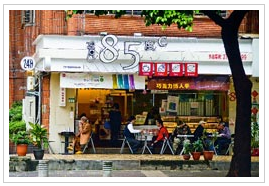
經濟部工業局局長吳明機指出,考量國情與產業發展的特性,工業局認為台灣的中堅企業,應符合「年營收在新台幣200億元以下或國內員工不超過2,000人」,以及「屬基礎技術紮實,在特定領域具有技術獨特性與關鍵性、具高度國際市場競爭力,
並以國內為主要經營或生產基地」等兩大特質。
IDB director-general Wu Ming-ji says that after considering Taiwan’s specific circumstances and level of industrial development, the IDB determined that to be selected for the program, our Mittelstand enterprises should meet two key criteria. First, they should have annual revenues of less than NT$20 billion or fewer than 2,000 domestic employees. They should also possess a solid technological foundation, including a unique and crucial technology within their specific field; be highly competitive internationally; and utilize Taiwan as their primary hub for either operations or production.
「根留台灣相當重要,因為惟有以國內為主要經營基地,才能挹注台灣的經濟成長,並提供國內勞工就業機會,」吳明機說。
經過嚴謹審核,從去年起,工業局即陸續遴選出20家卓越中堅企業與114家重點輔導對象。其中榮獲「卓越中堅企業」獎項的企業,均屬已在全球市場具高度競爭力的領頭羊,堪稱是我國中小企業的最高榮譽。
“We believe that it is very important for these companies to have their roots in Taiwan,” says Wu. “If they don’t use Taiwan as their principal base of operations, they’re not going to bolster domestic economic growth or create local jobs.”
The IDB put prospective companies through a stringent review process and has so far selected 20 Taiwan Mittelstand Award winners and 114 future stars.
這些獲獎企業,包括在血糖量測領域表現優異的五鼎生技;全球第二大滾珠螺桿及線性滑軌製造商上銀科技;圓編針織機市占全球第一(12%),並擁有Nike、ZARA、UNIQLO等國際知名品牌客戶的佰龍機械;獲頒聯合國「世界傑出手工藝獎章」、可與國外百年陶瓷領導品牌分庭抗禮的法藍瓷;全球前三大熱可塑橡膠製造商李長榮化工;全世界市占最高(65%)的潛水衣品製造供應商薛長興工業;主力產品「Power DVD」囊括85%全球市占率的多媒體影音軟體公司訊連科技;穩居智慧人機介面技術領先地位,並在專利訴訟打贏美商新思國際(Synaptics)及蘋果等跨國飪峈爾q隆電子;以及全球高階自行車的主力供應商巨大機械與美利達工業等。
Globally competitive bellwethers, the prize winners have now been recognized with the highest honor available to Taiwan’s SMEs. They include: ApexBio, a maker of blood sugar testing devices; Hiwin Technologies, the world’s second-largest manufacturer of ball screws and linear guideways; Pai Lung Machinery Mill, the world’s top manufacturer of circular knitting machines, with a 12% market share and a client list that includes Nike, Zara, and Uniqlo; porcelain designer Franz Collection, which has earned the United Nations’ Seal of Excellence for Handicrafts and is capable of going toe to toe with the world’s top porcelain brands; LCY Chemical, one of the world’s three largest manufacturers of thermo¬plastic elastomers; Sheico, the world’s largest supplier of water-sports apparel (65% market share); Cyberlink, maker of the market-dominating PowerDVD media player (85% market share); Elan Microelectronics, a leading manufacturer of intelligent human–machine interface technology which has successfully defended its patents against the likes of Synaptics and Apple; and high-end bicycle makers Giant Manufacturing and Merida Industry.
這些中堅企業一字排開,也成為台灣展現拚經濟決心的定心石!
These companies have become the backbone of Taiwan’s economy.
積累在製造業,拚經濟定心石
Building on manufacturing
分析這群獲選為卓越中堅企業與重點輔導廠商的產業類別,可發現以民生化工類最多(46家)、其次為金屬機電類(45家)、電子資訊類(28家)與知識服務類(15家)等。
Broken down by industry, some 46 of the Mittelstand companies and future stars come from the consumer goods and chemicals sector, 45 from metals and machinery, 28 from information technology and electronics, and 15 from knowledge-based services.
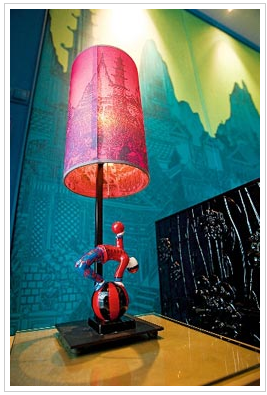
經濟部工業局長吳明機分析,「中堅企業,多集中在製造業領域」這一點,德國也是一樣。這乃是因為製造業可積累創新能量與技術,較能奠定難以撼動的市場地位。
Wu says that Taiwan’s Mittelstand companies tend to be concentrated in manufacturing, which is also true in Germany. The reason is that manufacturing provides companies with opportunities to accumulate technologies and innovations that enable them to establish themselves more solidly within their markets.
而服務業雖然在所有產業內占比最高,亦是全球產業經濟相當重視的顯學,但其主力市場著眼國內,不像製造業能創造高額的出口產值,並提供較多的就業機會。
While the service sector garners a great deal of global attention and has the largest number of businesses of any single sector, it caters largely to the domestic market. Manufacturing, meanwhile, generates export revenues and creates more jobs.
最近幾年,先進國家已重新反思製造業的重要性,如美國因製造業大量外移,國內比重僅剩餘11%,工作機會也隨之流失了600~700萬個,促使歐巴馬政府不得不積極推動「再工業化」政策,鼓勵美國本土企業與國際大廠重返美國設廠,現已獲得蘋果等企業的積極回應。
Over the last few years, the world’s advanced nations have begun reemphasizing manufacturing. In the US, for example, the offshoring of 89% of its manufacturing has cost the country 6–7 million jobs, compelling President Obama to promote “reindustrialization” by encouraging American and international firms to return to American factories. Fortunately for the US, the reestablishment of US manufacturing operations by Apple and others indicates that these efforts are beginning to bear fruit.
吳明機強調,台灣年輕人常有「製造業是黑手產業」的誤解而不願投入。事實上獲選的中堅企業,都已跳脫了傳統照本宣科的製造角色─他們相當重視研發,力圖創新產品及技術,並積極讓自己成為業界規格的領導者,品牌及專利的全球布局也極為完整。值得一提的是,這群企業普遍重視人才,勞資關係也非常融洽,員工的平均薪資更高達5.5~6萬元。
而現階段台灣雖以製造業在全球市場較為強勢,但服務業未來如能發展創新的經營模式,一樣有走向國際的機會。如本屆獲選為重點輔導廠商的美食達人公司(85度C咖啡),就以中央工廠控管品質,提供價廉質優又美味的咖啡、蛋糕及麵包,成功在中國大陸、美國及澳洲等國家攻城掠地;連對甜點口味要求嚴格的老外都願意買單。
Taiwanese manufacturing currently occupies a strong position in global markets, and Wu makes a point of noting that our service sector can go international as well if it can develop innovative ways of doing businesses. Bakery and café chain 85°C, designated a future star by the IDB, is a case in point. The company prepares its foods offsite from its retail outlets, which allows it to better control quality and provide its customers with consistently inexpensive and delicious coffees, cakes, and pastries. The model has helped the company expand to mainland China, the United States and Australia, and enabled its cafés to appeal to non-Chinese with sophisticated palates.
要當亞洲中堅企業模範生
Setting an example
其實,我國在國際出口市場的主要競爭對手南韓,日前也發布「全球性專門中堅企業之培育策略」,計畫在2020年前,培育300家具全球技術競爭力的中堅企業,並提供人才、資金、租稅減免與智財權產業化的政策資源。
In fact, South Korea, Taiwan’s main rival in the international export market, recently announced its own strategy for incubating Mittelstand enterprises. It plans to provide companies with aid in a number of areas, including personnel, capital, tax breaks, and even assistance with the commercialization of intellectual property, with the objective of cultivating 300 medium-sized enterprises that are technologically competitive on a global scale by 2020.
台灣經濟研究院研二所所長張建一分析,南韓自二次大戰後,即積極發展「國家資本主義」,傾全國之力扶植三星、樂金、現代等大財閥。發展至今,南韓的十大財閥,已牢牢掌握該國的經濟命脈,光是三星一家公司的營業額,就已超過南韓1/5的GDP總額。
Chang Chien-yi, director of Research Division II at the Taiwan Institute of Economic Research, says that South Korea has been aggressively developing its version of “state capitalism” since the end of World War II, offering national support to conglomerates that include Sam¬sung, LG, and Hyun¬dai. Those efforts have turned its ten largest business groups into the cornerstones of its economy. In fact, Samsung’s revenues alone account for one-fifth of the nation’s GDP.
但大財閥的長期壟斷,也造成南韓中小企業難以生存、社會貧富差距日益擴大等問題,為了重建產業秩序,新任總統朴槿惠因而宣示要進行財閥改革,並扶植多年來被邊緣化的中小企業及中堅企業。
But the long-term dominance of these groups has increased the wealth gap and made it difficult for SMEs to survive. Seeking to restructure South Korea’s industry, President Park Geun-hye has announced her desire to reform the conglomerates and support the development of the country’s long-marginalized SMEs and Mittelstand enterprises.
「以亞洲來看,台灣是中小企業表現可圈可點的模範生,南韓卻是成績最差的末段班;當兩國同時端出政策利多,就產業結構及創新能量等條件評估,台灣的中堅企業仍遠比南韓居於優勢,發展前景也較值得期待,」張建一說。
“If you look at Asia, Taiwan’s SMEs have performed remarkably well and become a model for the region, while South Korea’s are at the bottom of the class. With both countries now offering beneficial policies, Taiwan’s Mittelstand companies should maintain their tremendous advantage over their Korean counterparts in terms of their ability to innovate and their position within our industrial framework. Their future prospects look brighter as well,” says Chang.
獨霸一方的「小巨人產業」
Little giants
淡江大學產業經濟系副教授蔡進丁則認為,台灣中小企業的特性是靈活又創意十足,很適合開發多樣化的利基技術及產品;再配合「寧為雞首」的民族性,在特殊市場取得領先地位的機會極高。
Francisco Tsai, an associate professor with Tam¬kang University’s Department of Industrial Economics, feels that nimbleness and creativity are what have enabled Taiwan’s SMEs to develop their diverse niche technologies and products. These traits coupled with a cultural preference for being big fish in little ponds have helped Taiwanese companies establish leading positions in specialized markets.
他也提醒,未來我國的中小企業若要成長為中堅企業,最好選擇尚不受他國大企業重視的區域為戰場,如產品製程供應鏈體系的關鍵環節,或者開發現有規格之外的創新消費財等,避免與已具市場優勢者的美、日、韓等大企業硬碰硬對決,才能提高致勝機會。
Tsai adds that if our SMEs want to grow up into full-fledged Mittelstand enterprises, they need to target areas that are not high priorities for major corporations from other nations. They should avoid direct competition with large American, Japanese, and Korean firms occupying advantageous market positions, and instead aim to become a key link in a supply chain, to develop a radical new consumer product, or something similar.
他舉例,過去鎖定高階手機競爭的宏達電,雖然在研發與行銷實力上都頗為強勁,但是面對蘋果、三星等「強中自有強中手」的競爭者,就會打得非常辛苦;但若它一開始就如同風靡兩岸的小米機般,以生產低價高CP值的手機為定位,或許今天又是另一番局面。
Tsai cites HTC, which used to compete at the top end of the cellphone market, as an example of the perils of excessive ambition. In spite of strong R&D and marketing, the company just hasn’t been able to compete with larger rivals like Apple and Sam¬sung. Tsai believes that if it had instead chosen from the outset to do as ¬Xiaomi has done, establishing its position with low-cost, high-performance handsets, it might be in better shape today.
「台灣企業要做稱霸利基市場的小巨人,而非與其他競爭者搏『大』、比『主流』;只要產品或技術能攻上全球前3名,一樣能有卓越成就,」蔡進丁說。
“Taiwanese firms that want to become ‘little giants’ within their given niche should avoid competition based on size or being mainstream,” says Tsai. “Instead, they need to develop product lines or technologies that place them among the top three in the world for their category. Companies able to manage that can enjoy great success.”
蓬勃發展的中小企業,既是台灣驕傲,也是最重要的根基。如何讓這把穩固台灣經濟的火苗燒得更旺,協助更多企業發展成為在世界獨霸一方的隱形冠軍,將是未來我國在全球市場打造雄厚競爭力的關鍵。
Taiwan’s vigorously developing SMEs are both a source of pride and the cornerstone of our economy. Making these stars shine even brighter and helping still more of them become hidden champions on a global scale is crucial to enhancing our competitiveness in the international marketplace.
